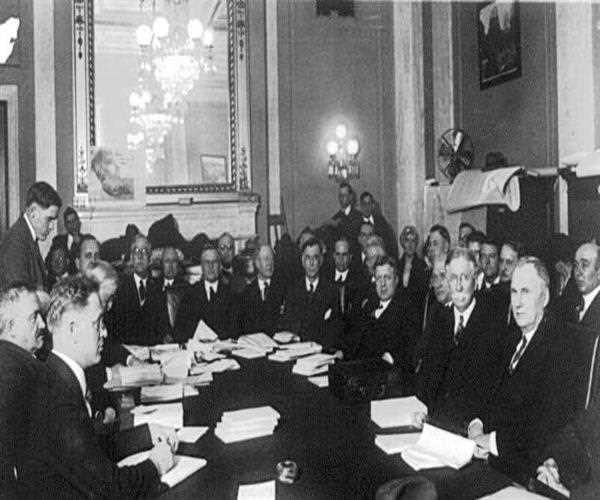
It is additionally called Oil Reserves Scandal or Elk Hills Scandal, in American history, the outrage of the mid-1920s encompassing the mystery renting of government oil saves by the secretary of the inside, Albert Bacon Fall. After Pres. Warren G. Harding exchanged supervision of the maritime oil-hold lands from the naval force to the Department of the Interior in 1921, Fall furtively conceded to Harry F. Sinclair of the Mammoth Oil Company restrictive rights to the Teapot Dome (Wyoming) saves (April 7, 1922). He allowed comparative rights to Edward L. Doheny of Pan American Petroleum Company for the Elk Hills and Buena Vista Hills saves in California (1921– 22).
At the point when these leases and contracts went under examination by boards of trustees of the U.S. Senate, it was unveiled that not long after the marking of the Teapot Dome rent, Fall and individuals from his family had gotten from an obscure source more than $200,000 in Liberty bonds under conditions demonstrating that the bonds originated from an organization sorted out by Sinclair and others accepting advantages from the rent. Likewise, it created the impression that before the execution of the Pan American contracts and rents, Doheny, at Fall's ask for, sent $100,000 in money to Fall as an "advance" that had not been reimbursed.
At the point when the undertaking wound up known, Congress guided President Harding to drop the leases; the Supreme Court proclaimed the leases false and ruled unlawful Harding's exchange of expert to Fall. In spite of the fact that the president himself was not ensnared in the exchanges that had taken after the exchange, the disclosures of his partners' unfortunate behavior took an extreme toll on his wellbeing; baffled and depleted, he passed on before the full degree of the bad behavior had been resolved. Fall was sentenced tolerating a pay off in the Elk Hills transactions and detained. Doheny and Sinclair were cleared of charges of pay off and criminal connivance, however, Sinclair burned through 6 1/2 months in jail for disdain of court and hatred of the U.S. Senate. Despite the fact that the secretary of the naval force, Edwin Denby, had marked every one of the leases, he was cleared of all charges. While "Teapot Dome" entered the American political vocabulary as an equivalent word for administrative defilement, the outrage had minimal long haul impact on the Republican Party. Calvin Coolidge, a Republican, was chosen the president in 1924.
Cheers!